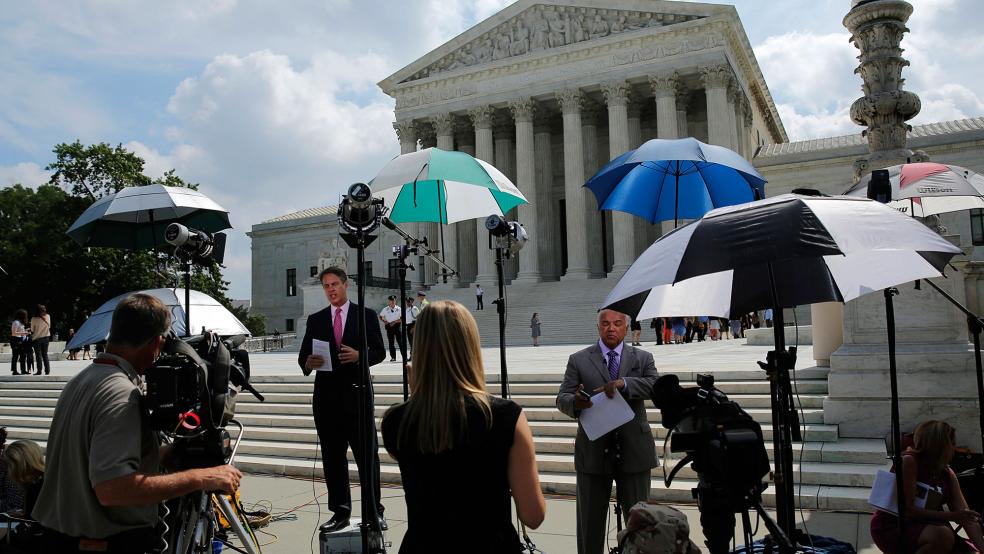Obamacare is once again on its way to court. This week a federal district judge in Washington, D.C., is scheduled to consider a legal challenge from House Republicans who say that President Obama overstepped his executive authority in implementing major provisions of the health care law.
House Speaker John Boehner filed the lawsuit in November, claiming the administration abused its use of executive action when making two separate changes to the health care law without congressional authorization—including delaying the employer mandate for one year and paying subsidies to insurance companies in order to cover the cost of insuring low-income people.
Related: Boehner Lawsuit Targets Obamacare’s Employer Mandate
“The president changed the health care law without a vote of Congress, effectively creating his own law by literally waiving the employer mandate and the penalties for failing to comply with it," Boehner said last year. "That’s not the way our system of government was designed to work. No president should have the power to make laws on his or her own."
The administration twice-delayed the employer mandate, which requires employers with 50 or more full-time workers to provide health coverage to workers or pay steep penalties.
The employer mandate is an unpopular provision among Republicans who have argued that requiring employers to provide health insurance to full-time employees could result in job cuts. The administration announced that instead of taking effect in 2014, as the law had originally provided, the employer mandate would kick in for large businesses in 2015 and mid-size companies in 2016.
The administration maintains that its action involved a regulatory change, which it has the authority to make.
Related: Obamacare Court Decision Puts Boehner Lawsuit on Notice
The Republicans’ suit also challenges a cost-sharing program that they claim is a “bailout” of insurance companies with money never appropriated by Congress. The program is intended to help insurers offset the costs of covering low-income people in order to entice the companies to participate in the health exchanges. The government is estimated to pay out $3 billion to insurance companies in fiscal 2014 and $175 billion over the next 10 years.
The House voted to authorize the legal challenge against the administration last summer. However, the effort ran into roadblocks when Boehner had trouble finding an attorney—two D.C. law firms refused, before he finally settled on Jonathan Turley, a constitutional law professor at George Washington University.
The decision by Republicans to target the delay of the employer mandate is noteworthy since the GOP is against the implementation of the mandate in general, and overturning its delay would only speed the day it takes effect for large companies. Still, their point is that by law, Congress should have had a say. Similarly, they have raised the same issue over the president’s actions on immigration and have also filed a lawsuit against the administration saying Obama overstepped his executive authority on that issue, too.
Top Reads from The Fiscal Times:





